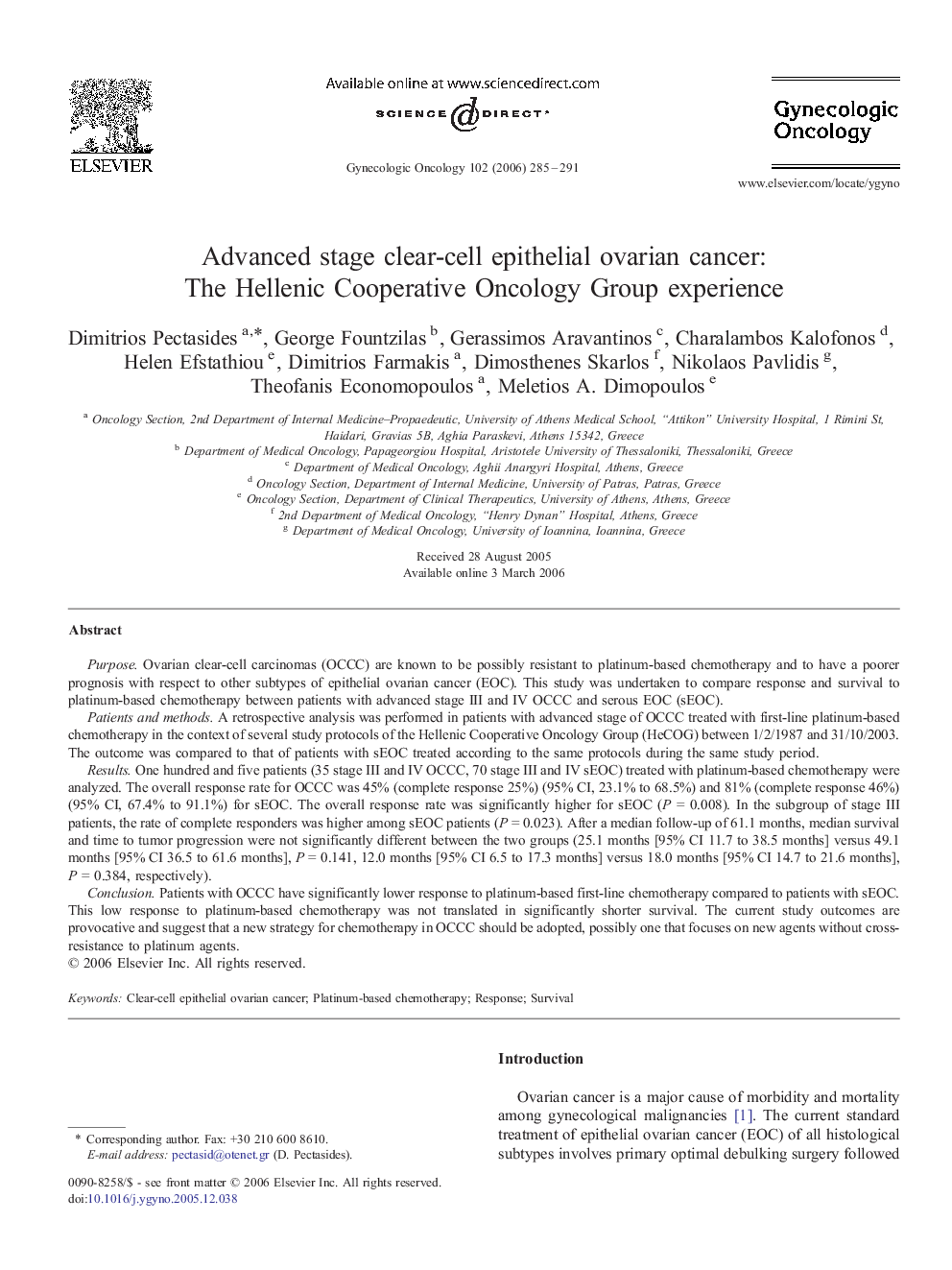| کد مقاله | کد نشریه | سال انتشار | مقاله انگلیسی | نسخه تمام متن |
|---|---|---|---|---|
| 3945095 | 1254248 | 2006 | 7 صفحه PDF | دانلود رایگان |

Purpose.Ovarian clear-cell carcinomas (OCCC) are known to be possibly resistant to platinum-based chemotherapy and to have a poorer prognosis with respect to other subtypes of epithelial ovarian cancer (EOC). This study was undertaken to compare response and survival to platinum-based chemotherapy between patients with advanced stage III and IV OCCC and serous EOC (sEOC).Patients and methods.A retrospective analysis was performed in patients with advanced stage of OCCC treated with first-line platinum-based chemotherapy in the context of several study protocols of the Hellenic Cooperative Oncology Group (HeCOG) between 1/2/1987 and 31/10/2003. The outcome was compared to that of patients with sEOC treated according to the same protocols during the same study period.Results.One hundred and five patients (35 stage III and IV OCCC, 70 stage III and IV sEOC) treated with platinum-based chemotherapy were analyzed. The overall response rate for OCCC was 45% (complete response 25%) (95% CI, 23.1% to 68.5%) and 81% (complete response 46%) (95% CI, 67.4% to 91.1%) for sEOC. The overall response rate was significantly higher for sEOC (P = 0.008). In the subgroup of stage III patients, the rate of complete responders was higher among sEOC patients (P = 0.023). After a median follow-up of 61.1 months, median survival and time to tumor progression were not significantly different between the two groups (25.1 months [95% CI 11.7 to 38.5 months] versus 49.1 months [95% CI 36.5 to 61.6 months], P = 0.141, 12.0 months [95% CI 6.5 to 17.3 months] versus 18.0 months [95% CI 14.7 to 21.6 months], P = 0.384, respectively).Conclusion.Patients with OCCC have significantly lower response to platinum-based first-line chemotherapy compared to patients with sEOC. This low response to platinum-based chemotherapy was not translated in significantly shorter survival. The current study outcomes are provocative and suggest that a new strategy for chemotherapy in OCCC should be adopted, possibly one that focuses on new agents without cross-resistance to platinum agents.
Journal: Gynecologic Oncology - Volume 102, Issue 2, August 2006, Pages 285–291